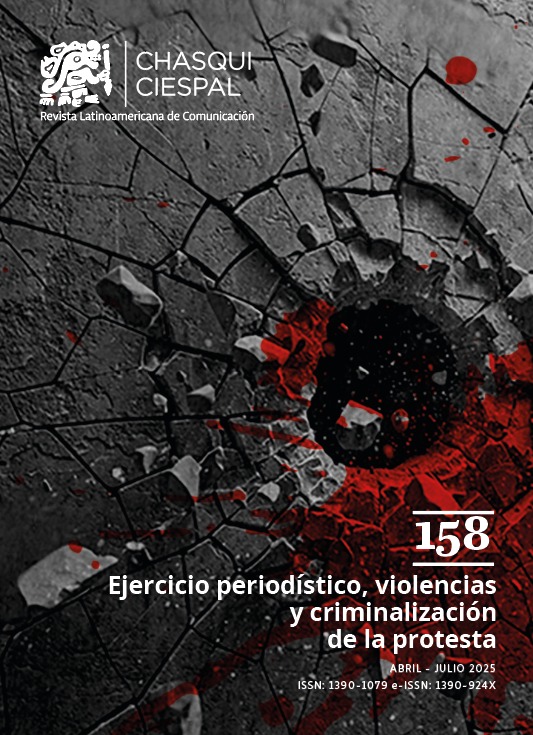Inteligencia artificial: retos y desafíos en la práctica profesional periodística
DOI:
https://doi.org/10.16921/chasqui.v1i158.5060Keywords:
periodismo, inteligencia artificial, percepción, modernización.Abstract
Este artículo explora los retos y desafíos que plantea la inteligencia artificial (IA) en la práctica profesional periodística, centrándose en cómo la integración de tecnologías avanzadas, como bots y algoritmos de IA, está transformando el newsmaking y otros aspectos clave del periodismo. El estudio adopta un enfoque cuantitativo no experimental, esto con el propósito de poder identificar patrones, tendencias y relaciones. Este tipo investigación es pertinente para la medición de las percepciones de los periodistas de manera objetiva y sistemática. A través de la aplicación de encuestas, se analizan las apreciaciones de los profesionales del periodismo sobre la automatización en las redacciones. Este desarrollo ha generado interrogantes sobre el futuro del periodismo, cuestionando si la automatización podría eventualmente reemplazar a los periodistas humanos. A pesar de estas preocupaciones, el estudio sugiere que la IA también ofrece oportunidades para que los periodistas se enfoquen en tareas más analíticas y complejas, como el periodismo de datos y el periodismo científico.References
Broussard, M. (2018). Artificial unintelligence: How computers misunderstand the world. MIT Press.
Carlson, M. (2018). The robotic reporter: Automated journalism and the redefinition of labor, compositional forms, and journalistic authority. In Journalism in an Era of Big Data (pp. 108-123). Routledge.
Diakopoulos, N. (2019). Automating the news: How algorithms are rewriting the media. Harvard University Press.
Flew, T., Iosifidis, P., & Steemers, J. (2016). Global media and national policies: The return of the state. In Global media and national policies: The return of the state (pp. 1-15). London: Palgrave Macmillan UK.
Graves, L. (2016). Deciding what’s true: The rise of political fact-checking in American journalism. Columbia University Press.
Guzman, A. L. (2020). The communication of AI: Human-AI communication in a digital age. Oxford University Press.
Napoli, P. (2019). Social media and the public interest: Media regulation in the disinformation age. Columbia University Press.
Shu, K., Sliva, A., Wang, S., Tang, J., & Liu, H. (2017). Fake news detection on social media: A data mining perspective. ACM SIGKDD Explorations Newsletter, https://doi.org/10.1145/3137597.3137600
Wardle, C., & Derakhshan, H. (2017). Information disorder: Toward an interdisciplinary framework for research and policy making. Council of Europe.
Downloads
Published
Issue
Section
License
- Authors retain copyright and grant the journal right of first publication with the work simultaneously licensed under a Creative Commons Attribution-NoDerivs License (CC BY-ND) that allows others to share the work with an acknowledgement of the work's authorship and initial publication in this journal.
- Authors are able to enter into separate, additional contractual arrangements for the non-exclusive distribution of the journal's published version of the work (e.g., post it to an institutional repository or publish it in a book), with an acknowledgement of its initial publication in this journal.
- Authors are permitted and encouraged to post their work online.

